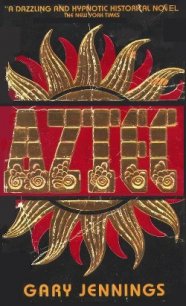Perfume. The story of a murderer - Suskind Patrick (читать книги онлайн бесплатно полностью без сокращений .txt) 📗
And so he learned to speak. With words designating nonsmelling objects, with abstract ideas and the like, especially those of an ethical or moral nature, he had the greatest difficulty. He could not retain them, confused them with one another, and even as an adult used them unwillingly and often incorrectly: justice, conscience, God, joy, responsibility, humility, gratitude, etc.-what these were meant to express remained a mystery to him.
On the other hand, everyday language soon would prove inadequate for designating all the olfactory notions that he had accumulated within himself. Soon he was no longer smelling mere wood, but kinds of wood: maple wood, oak wood, pinewood, elm wood, pearwood, old, young, rotting, moldering, mossy wood, down to single logs, chips, and splinters-and could clearly differentiate them as objects in a way that other people could not have done by sight. It was the same with other things. For instance, the white drink that Madame Gaillard served her wards each day, why should it be designated uniformly as milk, when to Grenouilie’s senses it smelled and tasted completely different every morning depending on how warm it was, which cow it had come from, what that cow had been eating, how much cream had been left in it and so on… Or why should smoke possess only the name “smoke,” when from minute to minute, second to second, the amalgam of hundreds of odors mixed iridescently into ever new and changing unities as the smoke rose from the fire… or why should earth, landscape, air-each filled at every step and every breath with yet another odor and thus animated with another identity-still be designated by just those three coarse words. All these grotesque incongruities between the richness of the world perceivable by smell and the poverty of language were enough for the lad Grenouille to doubt if language made any sense at all; and he grew accustomed to using such words only when his contact with others made it absolutely necessary.
At age six he had completely grasped his surroundings olfactorily. There was not an object in Madame Gaillard’s house, no place along the northern reaches of the rue de Charonne, no person, no stone, tree, bush, or picket fence, no spot be it ever so small, that he did not know by smell, could not recognize again by holding its uniqueness firmly in his memory. He had gathered tens of thousands, hundreds of thousands of specific smells and kept them so clearly, so, randomly, at his disposal, that he could not only recall them when he smelled them again, but could also actually smell them simply upon recollection. And what was more, he even knew how by sheer imagination to arrange new combinations of them, to the point where he created odors that did not exist in the real world. It was as if he were an autodidact possessed of a huge vocabulary of odors that enabled him to form at will great numbers of smelled sentences— and at an age when other children stammer words, so painfully drummed into them, to formulate their first very inadequate sentences describing the world. Perhaps the closest analogy to his talent is the musical wunderkind, who has heard his way inside melodies and harmonies to the alphabet of individual tones and now composes completely new melodies and harmonies all on his own. With the one difference, however, that the alphabet of odors is incomparably larger and more nuanced than that of tones; and with the additional difference that the creative activity of Grenouille the wunderkind took place only inside him and could be perceived by no one other than himself.
To the world he appeared to grow ever more secretive. What he loved most was to rove alone through the northern parts of the Faubourg Saint-Antoine, through vegetable gardens and vineyards, across meadows. Sometimes he did not come home in the evening, remained missing for days. The rod of punishment awaiting him he bore without a whimper of pain. Confining him to the house, denying him meals, sentencing him to hard labor-nothing could change his behavior. Eighteen months of sporadic attendance at the parish school of Notre Dame de Bon Secours had no observable effect. He learned to spell a bit and to write his own name, nothing more. His teacher considered him feebleminded.
Madame Gaillard, however, noticed that he had certain abilities and qualities that were highly unusual, if not to say supernatural: the childish fear of darkness and night seemed to be totally foreign to him. You could send him anytime on an errand to the cellar, where other children hardly dared go even with a lantern, or out to the shed to fetch wood on the blackest night. And he never took a light with him and still found his way around and immediately brought back what was demanded, without making one wrong move-not a stumble, not one thing knocked over. More remarkable still, Madame Gaillard thought she had discovered his apparent ability to see right through paper, cloth, wood, even through brick walls and locked doors. Without ever entering the dormitory, he knew how many of her wards-and which ones-where in there. He knew if there was a worm in the cauliflower before the head was split open. And once, when she had hidden her money so well that she couldn’t find it herself (she kept changing her hiding places), he pointed without a second’s search to a spot behind a fireplace beam-and there it was! He could even see into the future, because he would infallibly predict the approach of a visitor long before the person arrived or of a thunderstorm when there was not the least cloud in the sky. Of course, he could not see any of these things with his eyes, but rather caught their scents with a nose that from day to day smelled such things more keenly and precisely: the worm in the cauliflower, the money behind a beam, and people on the other side of a wall or several blocks away. But Madame Gaillard would not have guessed that fact in her wildest dream, even if that blow with the poker had left her olfactory organ intact. She was convinced that, feebleminded or not, the lad had second sight. And since she also knew that people with second sight bring misfortune and death with them, he made her increasingly nervous. What made her more nervous still was the unbearable thought of living under the same roof with someone who had the gift of spotting hidden money behind walls and beams; and once she had discovered that Grenouille possessed this dreadful ability, she set about getting rid of him. And it just so happened that at about the same time-Grenouille had turned eight-the cloister of Saint-Merri, without mention of the reason, ceased to pay its yearly fee. Madame did not dun them. For appearances’ sake, she waited an additional week, and when the money owed her still had not appeared, she took the lad by the hand and walked with him into the city.
She was acquainted with a tanner named Grimal-, who lived near the river in the rue de la Mortellerie and had a notorious need for young laborers-not for regular apprentices and journeymen, but for cheap coolies. There were certain jobs in the trade— scraping the meat off rotting hides, mixing the poisonous tanning fluids and dyes, producing the caustic lyes-so perilous, that, if possible, a responsible tanning master did not waste his skilled workers on them, but instead used unemployed riffraff, tramps, or, indeed, stray children, about whom there would be no inquiry in dubious situations. Madame Gaillard knew of course that by al! normal standards Grenouille would have no chance of survival in Grimal’s tannery. But she was not a woman who bothered herself about such things. She had, after all, done her duty. Her custodianship was ended. What happened to her ward from here on was not her affair. If he made it through, well and good. If he died, that was well and good too-the main thing was that it all be done legally. And so she had Monsieur Grimal provide her with a written receipt for the boy she was handing over to him, gave him in return a receipt for her brokerage fee of fifteen francs, and set out again for home in the rue de Charonne. She felt not the slightest twinge of conscience. On the contrary, she thought her actions not merely legal but also just, for if a child for whom no one was paying were to stay on with her, it would necessarily be at the expense of the other children or, worse, at her own expense, endangering the future of the other children, or worse, her own future-that is, her own private and sheltered death, which was the only thing that she still desired from life.




